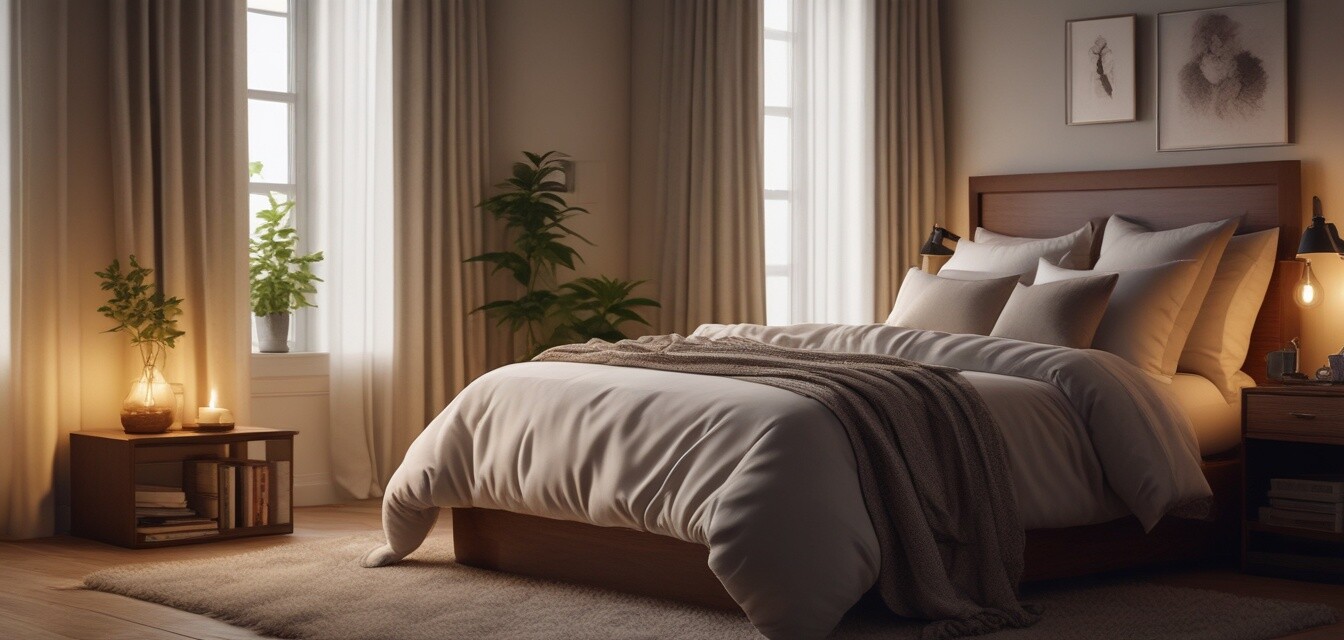
Improving Sleep Hygiene for Better Rest
- Establishing a consistent bedtime routine is crucial for enhancing sleep hygiene.
- Your sleep environment plays a significant role in the quality of your rest.
- Avoiding screens before bedtime can help improve sleep quality.
- Utilizing aromatherapy and relaxation techniques can also support better sleep hygiene.
- Incorporating natural remedies can be beneficial in your sleep routine.
Good sleep hygiene is essential for improving the quality of your rest and overall wellbeing. Simple adjustments to your daily habits and environment can lead to significantly better sleep. This guide explores effective strategies to refine your sleep hygiene, including environmental factors and bedtime routines that can facilitate restorative sleep.
What is Sleep Hygiene?
Sleep hygiene refers to a series of practices and habits that promote consistent and restorative sleep. It is about creating an optimal environment and establishing routines that signal your body it’s time to sleep. Poor sleep hygiene can lead to various issues, including insomnia and restless nights, making it vital to improve your practices surrounding sleep.
Key Factors Affecting Sleep Hygiene
| Factor | Description |
|---|---|
| Sleep Environment | A comfortable and quiet space free from distractions is essential for good sleep. |
| Bedtime Routine | Establishing a relaxing routine before bed can help signal your body that it’s time for sleep. |
| Dietary Choices | Avoid heavy meals and stimulants before bedtime to promote better sleep. |
| Screen Time | Reducing screen time an hour before bed can lead to improved sleep quality. |
Strategies for Improving Sleep Hygiene
1. Create a Comfortable Sleep Environment
Your sleep environment is pivotal to getting good quality rest. Consider the following tips:
- Keep your bedroom dark, cool, and quiet. Blackout curtains or a white noise machine can help.
- Invest in quality mattresses and pillows that cater to your sleep style.
- Consider using essential oils, such as lavender, to create a calming atmosphere.
2. Establish a Consistent Bedtime Routine
A bedtime routine can help signal your brain that it's time to wind down. Some effective practices include:
- Engaging in relaxing activities such as reading or meditation before bed.
- Avoiding stimulating activities or stressful discussions before bedtime.
- Sticking to a regular schedule by going to bed and waking up at the same time each day.
3. Limit Screen Time Before Bed
Blue light emitted by screens can disrupt your natural sleep-wake cycle. Here are some recommendations:
- Aim to switch off all electronic devices at least one hour prior to sleeping.
- Consider using blue light filters if you need to use screens during the evening.
4. Practice Relaxation Techniques
Incorporating relaxation techniques into your routine can help prepare your body for a restful night. Consider:
- Deep breathing exercises to help reduce tension.
- Gentle yoga or stretching to relax your muscles.
- Aromatherapy using calming scents to promote relaxation.
5. Explore Natural Remedies
There are various natural remedies that can be included in your nightly routine:
- Herbal teas, like chamomile or valerian root, can be soothing before bed.
- Supplements such as magnesium may aid relaxation (consult with a healthcare provider before use).
Common Sleep Hygiene Mistakes to Avoid
| Mistake | Impact |
|---|---|
| Irregular sleep schedule | Disrupts your circadian rhythm and affects rest quality. |
| Excessive caffeine intake | Stimulants can interfere with your ability to fall asleep. |
| Using the bed for work or screens | Makes it hard to associate your bed with sleep. |
Conclusion
Improving your sleep hygiene is essential for achieving better rest and an enhanced sense of wellbeing. By implementing practical strategies like creating a comfortable environment, establishing a consistent routine, and exploring natural remedies, you can significantly promote better sleep. Remember that small, consistent changes can lead to remarkable improvements in your overall health and recovery journey.
Pros
- Enhances sleep quality and duration.
- Supports overall health and wellbeing.
- Easy to implement with simple lifestyle changes.
Cons
- May take time to see noticeable results.
- Requires consistency and commitment.
For more tips on wellness and recovery, check out our Wellness Tips category. Additionally, explore related topics on buying guides, or delve into aromatherapy products that enhance your relaxation experience.
